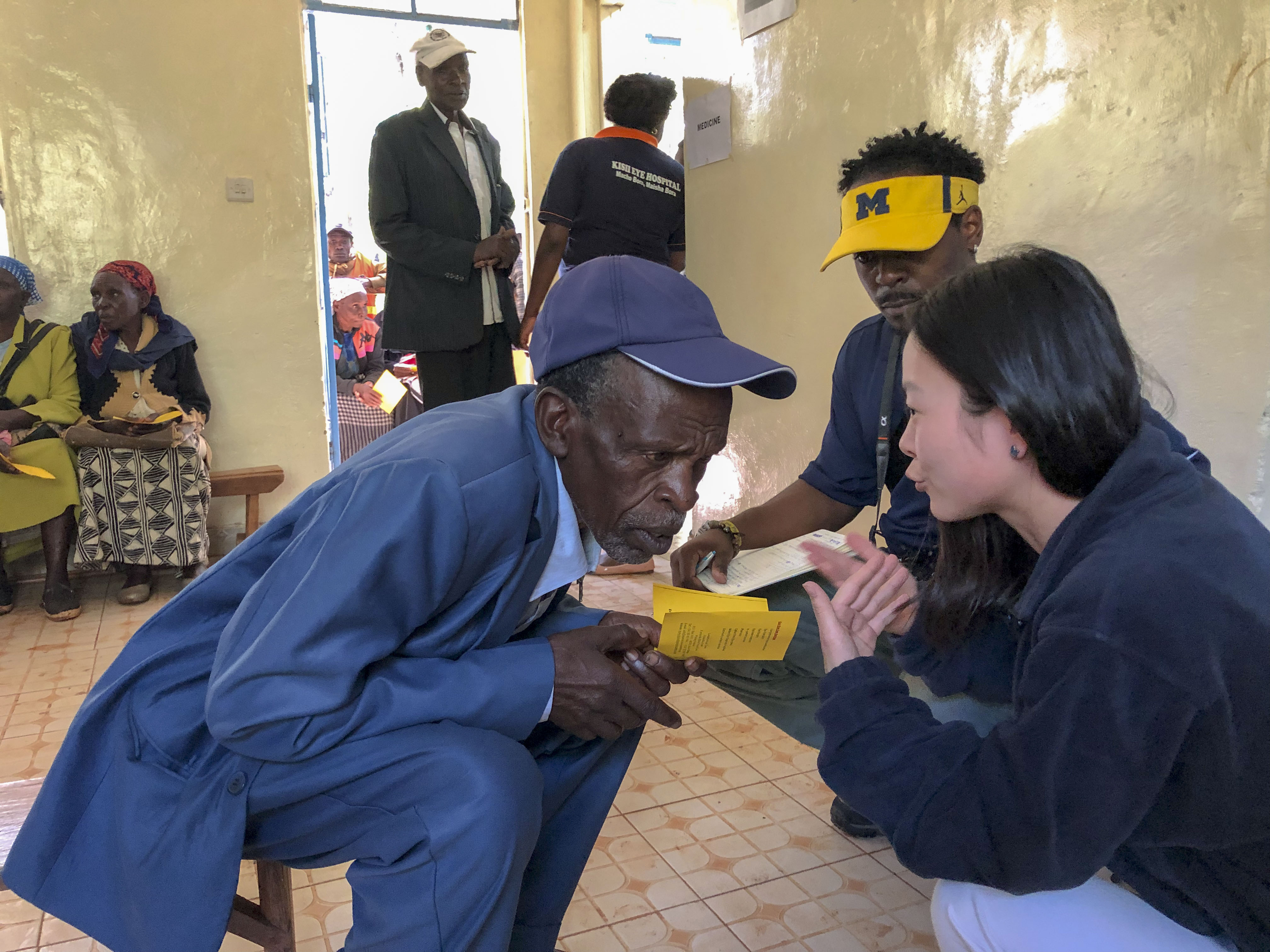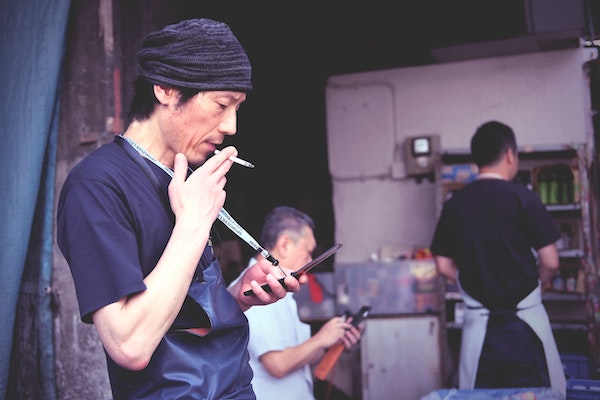With a growing middle class, early-stage frontier markets, enormous demographic advantages, and its ongoing digital transformation, Africa continues to grow in both economic and geopolitical importance. In “Demystifying Africa’s Risk Perception Premium,” Paul Clyde and co-authors make the case for a stronger U.S.- Africa trade and investment relationship, one that changes the narrative around doing business on the continent.
Small and medium-sized enterprises (SMEs) are vital engines of growth and employment, particularly in low- and middle-income countries (LMICs). Research has shown that gender-inclusive practices can enhance both financial and social outcomes for these businesses.
WDI, in collaboration with DAI and MarketShare Associates (MSA) through USAID’s Feed the Future Market Systems and Partnerships (MSP) Activity, conducted a series of case studies highlighting how SMEs can achieve “profit with purpose” through women-inclusive business models and operations. WDI’s key role on this project was to calculate the women-inclusive return on investment which included working closely with companies to collect and collate data.
This collection of resources answers the call of the Women-Inclusive Return on Investment Investment (WI-ROI) framework to build the evidence base of ROIs from SMEs in LMICs. The case studies also provide detailed information on how the ROI was calculated to help inform those interested in calculating their own WI-ROI. The learning note and synthesis report offer guidance on selecting and vetting companies, measuring the WI-ROI, and scaling women-inclusive strategies.
These resources aim to equip SMEs with the knowledge and tools needed to implement women-inclusive practices, measure their impact and WI-ROI, and ultimately drive business growth while contributing to gender equality. The team also held a webinar in April 2024 introducing these resources and answering audience questions on the WI-ROI.
We’d love to hear your feedback or answer any questions about these resources; please contact us at WDI-PerformanceMeasurement@umich.edu
ICL has been operating a successful lab in Ethiopia since 2004. In partnership with Cerba Lancet Africa and ICL, this project evaluated the feasibility of setting up a manufacturing hub and supply hub in Addis Ababa Ethiopia for diagnostics laboratories located throughout the continent.
Redat Healthcare is an Ethiopia based ambulance, house call, home care and telehealth service provider that will utilize a GPS based application to connect medical professionals and ambulances with patients for house call clinical services. Ethan Healthcare is developing an application that will connect patients with medical professionals. This project involved developing a funding model that would tap into the diaspora by generating funding that would cover the cost of services for friends and family back in Ethiopia.
Infinity Advanced Technology Solutions has been a supplier of imaging and other medical equipment and consumables in Ethiopia since 2016. The company is exploring the possibility of offering radiation therapy and/or a Cyclotron facility for manufacturing Fluorodeoxyglucose (FDG). The WDI team developed a market size estimate, understanding of regulatory hurdles and costs of production as part of a business plan.
This primer provides a comprehensive but non-technical overview of the distinct health information systems (HIS) that all together support health care delivery in low-resource settings. It opens with a historical account and landscape assessment and describes the urgent need to build a lean rigorous HIS that integrates these different components. Subsequent sections describe the individual systems that: i) track individual patient and health care provider information; ii) directly document care delivery; iii) provide public and population health data; iv) support facilities’ and community health workers’ administrative and financial functions; and v) coordinate logistics and health commodities supply chains. A separate section describes imported data, including “master data” and manufactured (e.g., “meta”) data. The primer closes with recommendations for principled HIS stewardship.

An information session for students interested in enrolling in BA685: Healthcare Delivery in Emerging Markets will be held at 5:30 p.m. on Monday, Oct. 28 at the Ross School of Business, Blau Hall Room 1210. The class is offered by Michigan Ross and is organized and primarily funded by WDI.
The class is comprised mostly of second-year MBA students, but is open to all graduate students. It provides students with on-the-ground experience in a foreign country while also contributing to the success of partner health clinics and hospitals. The class also is designed to increase participants’ international leadership capabilities and enhance their awareness of diverse business issues within the current global landscape. It is taught by WDI President Paul Clyde.
The course responds to the increasing need from future employers that managers have international business perspectives to augment their business and management knowledge. During the first part of the term, students learn about healthcare in emerging markets through lectures, guest speakers and case discussions. Students are then divided into five teams and prepared for visits to their selected country, traveling to those destinations in late February and early March.
Last year, student teams worked in Ethiopia, India, Kenya, Peru and Rwanda.

Photo by Erica Leong on Unsplash
Government health ministries in low- and middle-income countries (LMICs) have historically struggled to adequately fund healthcare services for their citizens. But as these countries transition away from donor funding over the next two decades, many will need to find new domestic revenue streams to finance these services. A new WDI white paper explores the impact of raising additional government revenue through increased tax rates on “bads,” such as tobacco, alcohol and sugary drinks.
The paper, “Revenue Estimates from Taxing ‘Bads’ in 16 Low- and Middle-Income Countries,” estimates the additional revenue generated in 2016 had higher excise tax rates been imposed on tobacco, alcohol and sugary drinks and then compares this revenue to select national economic indicators. The analysis included 16 low- and middle-income countries: Côte d’Ivoire, Democratic Republic of the Congo, Ethiopia, Haiti, India, Lao People’s Democratic Republic, Moldova, Myanmar, Niger, Papua New Guinea, Rwanda, Senegal, Sierra Leone, Tajikistan, Tanzania and Togo.

Ben Davis
“The key finding is that increased excise tax rates that result in only a modest increase in retail price can still generate an important amount of additional revenue relative to current health expenditure,” said Ben Davis, a research manager with WDI’s Healthcare sector. Davis wrote the paper with Pascale Leroueil, vice president of WDI’s Healthcare sector, and William Savedoff, senior fellow at the Center for Global Development.
The simulations showed that in 14 of the 16 countries, a tax increasing retail price by 17% could generate additional revenue that is more than 50% of the amount these governments currently spend from their own budgets on healthcare. For 7 of the 16 countries, additional revenue is more than 100% of that amount.
Davis emphasized that the study has limitations. For example, estimates do not account for income and cross-substitution effects (or when consumers switch to cheaper alternatives when a product’s price rises), and they are not adjusted based on historical experience in raising tax revenues.
While the results of the current study are broadly aligned with those recently produced by the Bloomberg Philanthropies’ Task Force on Fiscal Policy for Health, there is a slight difference in methodology. The method used by Davis and his fellow authors allowed them to incorporate several different data sources and calculation methods in the final revenue estimates. Input data were obtained from public databases, journal articles, and LMIC government websites and then used in either a “bottom up” or a “top down” calculation. The “Bottom up” calculation begins with data showing how often individuals consume tobacco, alcohol and sugary drinks while the “top down” calculation begins with the amount of money actually collected by LMIC governments that taxed these products.
Davis said these estimates could act as a starting point for a discussion between global donor organizations and country governments. “A government stakeholder might say, ‘These results are interesting. An increased excise tax on these products might be worth considering. Let’s do a deeper analysis to make sure these numbers reflect reality when we take into account all of the factors that couldn’t be captured in the initial study.’”
“This paper is a small part of a larger conversation about domestic revenue mobilization and healthcare financing in low- and middle-income countries,” Davis said. “It is a building block.”
This white paper is a modest contribution to the existing body of knowledge on potential revenue benefits from taxation of “bads” in low- and middle-income countries (LMICs). We seek to provide orders-of-magnitude responses to the questions, “For 16 LMICs, what amount of additional government revenue could have been generated in 2016 if higher excise tax rates had been imposed on tobacco, alcohol, and sugar-sweetened beverages?”, and “How does this additional government revenue compare to select national economic indicators?”.
WDI has been working with Ethio-American Doctors Group, Inc. (EADG) for five years in developing a world class hospital in Addis Ababa, Ethiopia. Work with EADG this year focused on developing the capacity to produce medical gases internally to satisfy EADG’s needs.